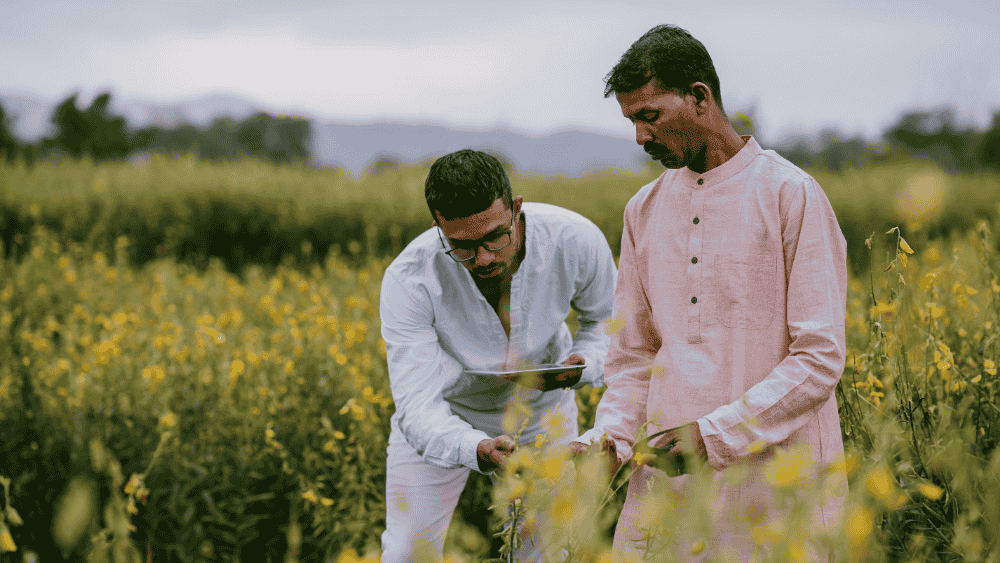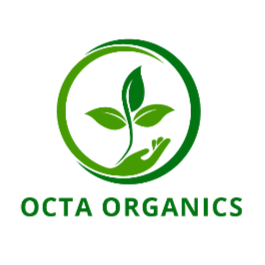
Natural Pest Control Strategies That Farmers Are Embracing in 2025
Share
Amidst the growing need to balance food production with environmental protection, sustainable agriculture has become a global imperative in recent years.
Sustainable agriculture today is being empowered by natural pest control strategies, promising natural, eco-friendly methods that preserve biodiversity, maintain soil health, and minimize negative environmental impacts.
Pest infestations like fungal diseases in plants are real problems that trouble most farmers. And as chemical residues, synthetic pesticides, and environmental degradation threaten our food systems, farmers worldwide are adopting innovative natural pest control methods to protect their valuable crops from harmful pests.
Natural pest control is not just a viable option; it is an imperative for crop protection.
By understanding the concept of natural pest control, you can ensure environmentally-friendly, economically viable, and socially responsible farming.
Through this comprehensive guide, we’ll dive deeper into the world of eco friendly pest control, understanding why it is important for modern farmers and exploring the most powerful natural pest control methods farmers are using in 2025.
What are Natural Pest Control Strategies?
Natural pest control strategies refer to specific agricultural practices that are used to control pest infestations in plants while minimizing the harm to the environment and human health. These strategies involve the use of natural or non-toxic methods to manage pests, maintain ecological balance, and promote agricultural sustainability.
With the rise of natural pest control methods, farmers are moving away from conventional, chemical-based methods that have long been employed in farming. Natural methods not only eliminate the negative impacts of old practices but also offer more effective solutions against challenges like bacterial disease in plant.
Best Natural Pest Control Strategies in 2025
Organic farming is a holistic agricultural approach that encompasses different pest control methods. Each of these methods targets different pest life stages, focuses on reducing chemical reliance, and emphasizes ecosystem balance. For maximizing impact, farmers can integrate multiple strategies based on specific crop needs.
Let’s break down the eight most impactful natural pest control strategies that farmers are embracing in 2025;
Organic Pesticide
Organic pesticide products are undoubtedly the most reliable, effective, and trusted natural pest control method used by farmers today. These pesticides are created using naturally-derived ingredients and are completely chemical-free. Organic pesticides not only eliminate pests but also improve plant health and growth.
Beneficial Insects
Encouraging the presence of beneficial insects serves as a natural defense mechanism against pests. Ladybugs, lacewings, and predatory beetles are among the beneficial insects that feed on harmful pests, helping to keep their populations in check. Beneficial insects are completely harmless to plants, humans, and animals.
Companion Planting
Companion planting involves strategically growing different crops together to maximize the benefits of their interactions. Some plants emit natural compounds that repel pests, while others attract beneficial insects. For example, planting Thyme and Basil alongside fruits and vegetables in fields is effective for mite treatment.
Plant Extracts
Natural extracts from plants, such as neem oil, have proven effective in pest control. Neem oil disrupts the life cycle of pests, acting as a deterrent and inhibiting their feeding and reproduction. Similarly, other plant extracts with pesticidal properties offer a natural alternative to synthetic chemicals, reducing environmental impact.
Microbial Insecticides
Microbial insecticides harness the power of naturally occurring microorganisms to target specific bacterial disease in plant. Bacillus thuringiensis (Bt) is a well-known example, producing toxins lethal to certain insects. These microbial solutions provide targeted pest control with minimal impact on non-target organisms.
Crop Rotation
Crop rotation disrupts the life cycles of pests by changing the crops planted in a specific area over time. Additionally, planting a variety of crops creates a diverse environment that can confuse and deter pests. This approach enhances soil health, reduces pest pressures, and promotes a more resilient agricultural system.
Physical Barriers
Physical barriers, such as raw covers and yellow traps, can protect crops from flying insect pests. Trap crops, planted to attract and divert pests away from main crops, serve as a natural decoy. Physical barriers also prove effective in keeping insects away that act as vectors for fungal spores and spread fungal diseases in plants.
Resistant Varieties
Resistant varieties or genetically modified crops are plant species that are altered at the genetic level to resist specific pest infestations and diseases. They have enhanced immunity, making them resilient against harmful pests. By using these varieties, farmers do not need to rely on any other pest control methods.
How to Implement Eco Friendly Pest Control in Your Fields
Practising organic and sustainable farming is more than just about knowing the best eco friendly pest control methods; it is about implementing them the right way. For maximum results, you should combine the most effective strategies and practices. This ensures that your efforts and investments are made in the right direction.
Here are the essential steps that you must follow to implement natural pest control methods on your farm;
Assess Pest Conditions
Identify the pests present in your area and assess their potential impact on your crops. This will help you determine the most appropriate natural pest control strategies to employ and ensure you get long-term plant protection.
Choose the Right Solutions
Select natural pest control products and techniques that are suitable for your specific pest issues and farming practices. Consider factors such as crop type, growing conditions, and environmental considerations to pick the most effective solutions.
Monitor and Adapt
Regularly monitor your crops for signs of pest damage and adjust your pest control strategies as needed. For example, adapt mite treatment solutions like plant extracts and organic fungicides when your plants are affected by spider mites or aphids.
Leverage Sustainable Practices
Incorporate sustainable farming practices into your overall pest management strategy, such as soil conservation, water management, and habitat preservation. These practices can help you practice more resilient and eco-friendly farming.
Embracing Eco Friendly Pest Control with Octa Organics
Natural pest control strategies offer a promising path forward for farmers seeking to achieve success while minimizing the negative environmental impact. By prioritizing sustainability and embracing innovative pest control methods, farmers can protect their crops, support biodiversity, and contribute to a healthier planet.
To take the next step towards implementing environment-friendly pest control solutions and achieving farming success, farmers can join hands with Octa Organics. Our 100% natural pesticide products empower farmers to eliminate harmful pests from their valuable crops while promoting plant health for a more beneficial yield.

